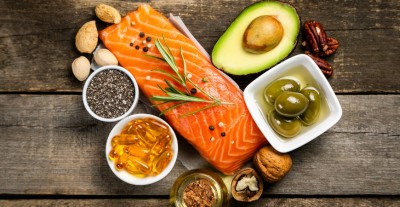Egg Calories: Why the Numbers Don’t Tell the Whole Story
The egg, this small concentration of protein in a shell, scrambled or fried, is one of the most consumed foods in the world. But also one of the most misunderstood. For several years, it has become the scapegoat for those who count calories with every bite. What if this obsession was not only unnecessary... but also counterproductive ?
On Google, thousands of queries each month seek to know the exact calorie content of an egg. This shows how much this question preoccupies minds. But this seemingly simple figure hides a much more complex reality. Indeed, talking about calories without considering the context, the individual profile, or even the way the egg is eaten, is like judging a book by its cover.
Counting calories: a modern obsession ?
The origin of the calorie as a unit of measurement dates back to the 19th century. Initially, it was an energy measure related to thermal engines. It was only later that it was applied to nutrition, in an attempt to rationalize what we eat. The result: a mechanistic view of the human body, where each consumed calorie should be burnt by an equivalent expenditure. This model, named "calories in, calories out", is still omnipresent today... and yet deeply outdated.
The problem? Not all calories are created equal. Those from an egg will not have the same metabolic impact as those from a soda or an industrial croissant. And this, nutritional tables do not tell you. They do not take into account each person's hormonal profile, nor the quality of digestion, let alone gut flora or lifestyle. The myth of the calorie as an absolute value collapses as research advances.
Are eggs really high in calories ?
A medium-sized egg contains about 70 to 80 kcal. This number varies slightly depending on the size, cooking method, or whether it is consumed alone or with other foods. But it's not this raw number that matters. The egg is rich in high-quality proteins, vitamins A, D, E, B12, choline, and good lipids. It also contains cholesterol, which has long made it an ideal culprit for those advocating a simplistic nutrition approach... However, modern studies show that moderate egg consumption does not have a negative impact on cardiovascular health in most healthy individuals.BMJ, 2013).
Another often overlooked point: the thermal effect of food. The egg, like other sources of protein, requires the body to use more energy to digest. As a result: the net calories actually absorbed are lower than those displayed. This phenomenon, called the thermal effect, is rarely included in basic calculations.
Eating an egg in the evening: good or bad choice ?
The answer is: it depends. On what? On your circadian rhythm, your physical activity, your digestion, and your metabolic profile. If you engage in sports activity in the evening, an egg can perfectly fit into a post-workout meal, rich in proteins. It will be digested slowly, which can help limit nighttime cravings. On the other hand, if your digestion is slow or you have trouble sleeping after a protein-rich meal, it is better to opt for lighter foods. Here again, calories alone are not enough to decide.
And what about the other foods in all this ?
The example of the egg clearly shows how calorie counting can be reductive. But what about other foods often considered as "caloric" or misunderstood? Avocado, salmon, rice... Here are some concrete examples to better understand how these foods fit into a smarter nutritional approach.
The avocado: a fatty fruit, but not guilty
Often wrongly suspected in low-calorie diets, the avocado is a victim of its energy density. With about 160 kcal per 100 g, it can be frightening. However, it is mainly made up of monounsaturated fats, beneficial for cardiovascular health. Its richness in fiber (nearly 7 g per 100 g) makes it a food to low glycemic index, with a prolonged feeling of fullness. In summary: yes, it's caloric, but yes, it's useful ! !
Salmon: fatty, but essential
Salmon contains between 180 and 220 kcal per 100 g, depending on the variety (fresh, smoked, farmed or wild). This content is largely due to its richness in Omega-3 EPA and DHA, has recognized anti-inflammatory effects. It also contains complete proteins, B vitamins, and selenium. A so-called "caloric" food that yet contributes to preventive nutrition against metabolic diseases.
Rice: a food to choose carefully
Cooked white rice contains about 130 kcal per 100 g. But this data is misleading if we do not consider the type of rice (whole, basmati, jasmine, etc.) and its glycemic index. Basmati rice, for example, has a moderate GI and results in a slower increase in blood sugar. As for brown rice, it provides more fiber, minerals (magnesium, zinc) and contributes to satiety. That's why The timing of consumption, the quantity, and the accompaniment play a crucial role. in the actual caloric impact of rice.
FAQ - Calories and Food: What You Need to Know
1. Does an egg make you gain weight ?
No, a hard-boiled egg (about 70-80 kcal) is high in protein, filling, and low in carbohydrates. It is even used in weight loss diets.
2. Can I eat avocado if I'm watching my calories ?
Yes, in moderate amounts. It is more important to consider the quality of calories that their simple quantity.
3. Is salmon too fatty for a diet ?
No, his fats are mostly essential. It remains a pillar of health and anti-inflammatory diets.
4. Is white rice a bad choice ?
It is not bad in itself, but must be consumed intelligently, in small portions and ideally after physical effort or combined with vegetables and proteins.
5. What do you think of the "calories in vs calories out" model ?
It's a vision. reducer. Metabolism, sleep, hormones, and gut flora largely influence the equation.
6. Does the time of day change the impact of calories ?
Yes. We metabolize better in the morning and at noon. Eating high-calorie food in the evening is often less well metabolically tolerated.
7. What does "nutritional density" mean ?
It's the micronutrient value per calorie. An egg or an avocado are dense, a lemonade is not.
8. Is there an "ideal" food in terms of calories ?
No. Everything depends on your needs, your activity, your metabolism, and your goal (health, sport, weight loss...)
Conclusion - Calories not as simple as they seem
Instead of frantically counting calories, it's time tointegrate a qualitative approach in our relationship with food. Food is not just a number. We need to understand its biological value, its consumption context, its effect on satiety and metabolism. Eggs, avocado, rice, or salmon are allies depending on how they are integrated into an overall dietary balance.
Sources
➤ To understand how eggs affect satiety and weight management, this study published in the International Journal of Obesity is particularly interesting: https://www.nature.com/articles/0803331
➤ Regarding the nutritional properties of avocado and its impact on cardiovascular health, you can refer to this paper from theAmerican Heart Association You didn't provide any text to translate. Could you please provide the text you want to be translated? https://www.ahajournals.org/doi/10.1161/JAHA.115.001355
➤ To learn more about the beneficial fats in salmon, this article Harvard T.H. Chan School of Public Health provides clear benchmarks: https://www.hsph.harvard.edu/nutritionsource/food-features/fish/
➤ The impact of the glycemic index of rice and how its preparation influences the metabolic response is analyzed in this review published in Food & Nutrition Research You didn't provide any text to translate. Could you please provide the text you want to be translated? https://www.ncbi.nlm.nih.gov/pmc/articles/PMC6683051/
➤ For a more comprehensive reflection on the "calories in / calories out" model, this file proposed by Precision Nutrition clarifies the limits of the concept: https://www.precisionnutrition.com/calories-in-calories-out
To go further: Discover our in-depth article on sustainable weight loss and the often unknown obstacles that influence the results. Read the full article










